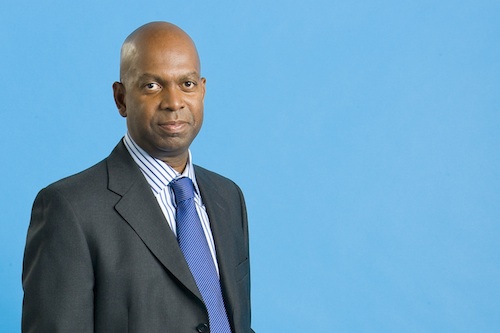
Congolese Wireless Network (CWN), Vodacom’s partner in its subsidiary in the Democratic Republic of Congo (DRC), has accused the JSE-listed cellphone group of fraud and swindling, abuse of trust, and usury, among other charges.
CWN wants Vodacom to cough up more than US$200m it claims the latter has unlawfully taken out of the DRC business through various means.
The allegations are contained in legal papers, dated 15 December 2009, which CWN may already have lodged with the courts in Kinshasa, the DRC capital.
TechCentral has obtained a copy of the papers from sources in Kinshasa, but has not been able to determine whether they have been filed with the courts there. Vodacom does not believe an application has been lodged at this stage.
On Tuesday, TechCentral broke the news of the breakdown in relations between CWN and Vodacom (see “Trouble for Vodacom as DRC venture comes unstuck“). This prompted Vodacom to issue a media statement on Wednesday in which it confirmed that the parties were in dispute and described the relationship as “dysfunctional”.
Though Vodacom says it remains committed to resolving the issue through negotiation, it now appears inevitable that the matter will go to court. It seems likely that the breakdown in relations will eventually lead to an overhaul of the shareholding structure of Vodacom DRC.
CWN holds 49% of Vodacom DRC, with Vodacom Group subsidiary, the Mauritius-based Vodacom International, controlling the rest. CWN is controlled by Gambian-born US national Alieu Conteh. TechCentral has been unable to reach Conteh for comment.
In a detailed interview with TechCentral in Midrand on Wednesday, Vodacom chief officer for corporate affairs, Bob Collymore, lashed out at CWN over its claims, calling them groundless.
Among other things, CWN claims in its legal papers, prepared in French by Kinshasa advocate Roger Masamba, that:
- Vodacom paid expensive SA-based consultants in an apparent effort to reduce the level of profitability in the DRC business. This, it claims, resulted in reduced dividend payments to shareholders. CWN says it had little power, in terms of the shareholder structure, to control this spending.
- Vodacom International has raised a debt facility from Standard Bank to the tune of $180m. Much of this money — about $168m, according to CWN — has been loaned, in turn, by Vodacom International to Vodacom DRC, with the former levying interest, intermediary fees, and other charges on the latter. CWN claims it has not had sight of the original agreement between Vodacom International and Standard Bank and wants to see it.
- Vodacom Group, through Vodacom International, has enriched itself to the detriment of CWN.
CWN’s legal papers claim that Vodacom DRC has paid Vodacom International $108m in interest to date and it wants this money paid back. It also wants Vodacom International to pay interest and damages of $25m as well as dividends to CWN to the value of $81m — or 49% of the value of the disputed loan agreement with Vodacom International.
Though the claim by CWN is aimed principally at Vodacom International, the legal papers make it clear that if the matter goes to court, the company wants a judge to consider the “legal character” of dealings involving Vodacom Group, Standard Bank and “certain entities” within the DRC.
But Collymore has hit back at CWN’s claims, calling them baseless. He says that:
- In terms of an agreement between the shareholders, all of Vodacom DRC’s budgets are signed off by the board, which includes CWN-nominated directors. He says CWN, therefore, cannot claim it has no say over how money is spent. “To my knowledge, we’ve never had an individual member of the board not approve the budget.”
- The board also approved loan facilities from Vodacom International to Vodacom DRC — including the terms thereof — so CWN can’t claim ignorance of them. There are two such loans, worth $350m together, Collymore says.
- CWN has had sight of the agreement between Vodacom International and Standard Bank, despite the Congolese company’s claims to the contrary. But, says Collymore, CWN didn’t have a right to see the agreement as Vodacom DRC was not party to it. Nevertheless, it was shown to CWN representatives at a meeting in Paris, France, he says.
- Interest rates and other fees charged by Vodacom International to Vodacom DRC are “market related”.
- CWN cannot expect the Vodacom DRC business to receive an interest-free loan from Vodacom International given that CWN has a significant stake in the company. Interest will almost always be levied in arrangements such as this, Collymore says.
In Vodacom’s media statement issued on Wednesday, Collymore says any intended litigation by CWN is “entirely without merit and a contrived attempt to force Vodacom disproportionately to fund further investment”.
“Vodacom remains firmly focused on developing the Vodacom Congo business to its full potential, but we cannot justify further investment while relations with our minority shareholder are combative and dysfunctional.”
Despite the animosity, Collymore says Vodacom is still keen to find a negotiated settlement rather than go to court. “We have to find a solution to this,” he says.
To outside parties, however, it’s hard to see how the relationship can be rescued given the level of animosity and distrust. — Duncan McLeod, TechCentral
- Do you have information to share related to this story? Please contact the writer.




